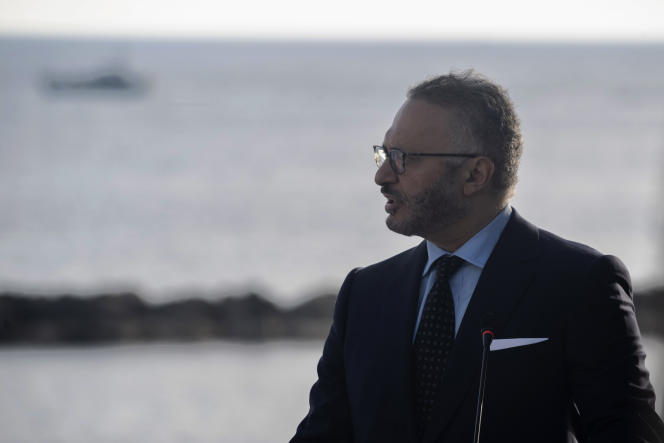As Joe Biden’s visit to the Middle East continues, amid rising tensions with Iran, the United Arab Emirates (UAE) is opting for appeasement with Tehran and they are making it known. On Friday, ahead of Emirati President Mohammad Bin Zayed’s (“MBZ”) visit to Paris, his diplomatic adviser Anwar Gargash announced that Abu Dhabi was considering returning an ambassador to Iran soon, six years after lowering the standard of its representation in Tehran.
“We are in the process of sending an ambassador to Iran,” Gargash said at a press briefing. Our Minister of Environment and Climate Change [Mariam Bint Mohammed Saeed Hareb Almheiri] was in Iran a few days ago [July 12]. Our exchanges with Iran continue at the ministerial level. Thus, we are giving the signal that confrontation with Tehran is not an option for us. If that happens, we won’t be part of it. »
These words send a clear signal of de-escalation to Iran, as the United States and Israel harden their rhetoric vis-à-vis Shia power. Friday, Joe Biden completed his trip to Israel, Iran’s sworn enemy, where he signed a strategic partnership whose main purpose is to prevent Tehran from acquiring nuclear weapons and “to face his destabilizing assaults and activities,” according to the statement. The tenant of the White House then left for Saudi Arabia, leader of the Sunni camp in the Middle East and regional rival of Iran. The American president was to participate on Saturday in a meeting of the Gulf Cooperation Council, in the presence of the leaders of Jordan, Egypt and Iraq. At the center of the discussions, the development of a regional defense architecture, supposed to counter Iranian intrigues.
In 2016, after the ransacking of the Saudi embassy in Tehran by demonstrators revolted by the execution of a Saudi Shiite imam, the Gulf countries significantly reduced their relations with the Islamic Republic of Iran. Since, and especially after former US President Donald Trump’s (2017-2021) unilateral exit from the nuclear “deal” with Tehran in 2018, the United Arab Emirates have hardened their position against Iran, sometimes appearing as one of the most determined countries on the anti-Tehran front.
This feeling increased in 2020, when the Emirates normalized its relations with Israel, the spearhead of the confrontation with the Islamic republic. The previous year, attacks and boardings of tankers and boats by pro-Iranian actors had multiplied in the Persian Gulf, especially off Foujeyra, one of the city-states of the UAE. In January 2022, three people were killed in the Emirates in a drone attack blamed on Houthi rebels, a pro-Iranian rebellion fighting central power in Yemen, aided by a coalition led by Riyadh.
The Emirati announcement absent from Iranian newspapers
But, at the same time, the Emirates have always tried to maintain a channel of communication with their big neighbor. After the Foujeyra affair, they had sent the chief of their coast guard to Tehran and had been careful, unlike Israel and the United States, to explicitly incriminate Iran. “On the one hand, the UAE is trying to show Iran that it does not want a direct confrontation with it and, on the other hand, they are extremely worried, because they are very exposed to missiles and drones Iranians, which leads them to draw closer to Israel. Especially since the United States has withdrawn from the region,” said Hamidreza Azizi, visiting professor at the German Institute for International and Security Affairs in Berlin.
On July 16, newspapers in Tehran reacted to Joe Biden’s “hostile” visit to the region, devoting their front-page headlines to Iranian President Ibrahim Raisi’s promise to “make people regret any military threat of the United States and Israel. The announcement of the upcoming return to Tehran of the Emirati ambassador was absent from Iranian dailies. Only a few Internet sites, of average importance, mentioned it, in brief.














